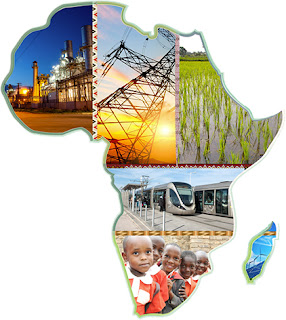Following a recent statement issued by the United Democratic Party regarding the death, while in detention of another member of the party, the International community yet again issued identical statements condemning the situation. And yet again, the African Union (AU) and the Economic Community of West African States (ECOWAS) remain tight-lipped over happenings in The Gambia. Below we reproduce some of the major outcries from the international community:
The Office of the United Nations High Commissioner for Human Rights (OHCHR) has deplored the death in custody of Ebrima Solo Kurumah, a member of the opposition United Democratic Party (UDP), last Saturday, a spokesperson for the Office said. Mr. Kurumah was among 30 members of the UDP who were imprisoned, in April, following protests against the death of Solo Sandeng, the Chairman of UDP's youth wing. Mr. Sandeng had also died while in custody.
OHCHR had earlier expressed concerns over the imprisonment and that there had been no proper investigation into allegations of excessive use of force in the context of the demonstrations. Speaking at a regular press briefing in Geneva, Cécile Pouilly said that according to reports, Mr. Kurumah passed away after he was taken to a hospital for a surgical operation.
He had allegedly been denied medical help on several occasions while in detention. Additionally, there are reports that other detainees have also been denied medical care in recent months.
“We urge the authorities to investigate the death in State custody of Mr. Sandeng and Mr. Kurumah,” said Ms. Pouilly, urged them to also investigate allegations that detainees are denied access to medical care.
“The United Kingdom is concerned about the reported death in custody of the Gambian opposition member, Ebrima Solo Krummah. The United Kingdom has raised concerns over reports of excessive violence and ill treatment of those in custody in the Gambia on a number of occasions, and we have also expressed our dismay over the severity of the sentencing in the case of the United Democratic Party leader and his supporters.
The United Kingdom calls on the Gambian authorities to release all political prisoners and ensure that claims of mistreatment are investigated in a credible and transparent way in line with international human rights obligations. We also call on the Gambian authorities to create an inclusive environment that allows all political parties, and their supporters, the ability to participate in the electoral process without hindrance.”
The United States is deeply concerned by the death of Gambian opposition member Ibrima Solo Krummah, who reportedly died on August 20 while in government custody. We remain troubled by reports of the Gambian government’s continued mistreatment of detained opposition figures, as evidenced by recent deaths and allegations of torture.
We call for an independent investigation of all credible allegations of torture and abuse, and for the Gambian government to provide for the humane treatment of all prisoners. We again call on the government of The Gambia to immediately release all political prisoners, including the 30 individuals sentenced last month and those arrested during the April and May demonstrations. We further urge the government of The Gambia to cease its sustained crackdown on political opposition members and supporters, and to respect the rights of all citizens to freedoms of expression and association without fear of retribution.
France is concerned by the death, while in custody, of Solo Krummah, an official in Gambia’s United Democratic Party (UDP), who had been arrested on May 9. We urge an independent investigation into the circumstances of his death, as well as that of UDP activist Solo Sandeng shortly after his arrest on April 14. We call for the release of all political prisoners. The allegations of torture are particularly troubling. France asks the Gambian authorities to fully respect the freedoms of expression and peaceful assembly and human rights, in keeping with Gambia’s international commitments.
We join the international community and all concerned Gambians to urge the Government to set up a coroner’s inquest into the deaths of Solo Krummah and Ebrima Solo Sandeng. We also continue to demand for the unconditional release of all political prisoners.
Rest in eternal peace Messrs Krummah and Sandeng. You may have gone too soon but your legacy will forever remain in the history books of The Gambia.



